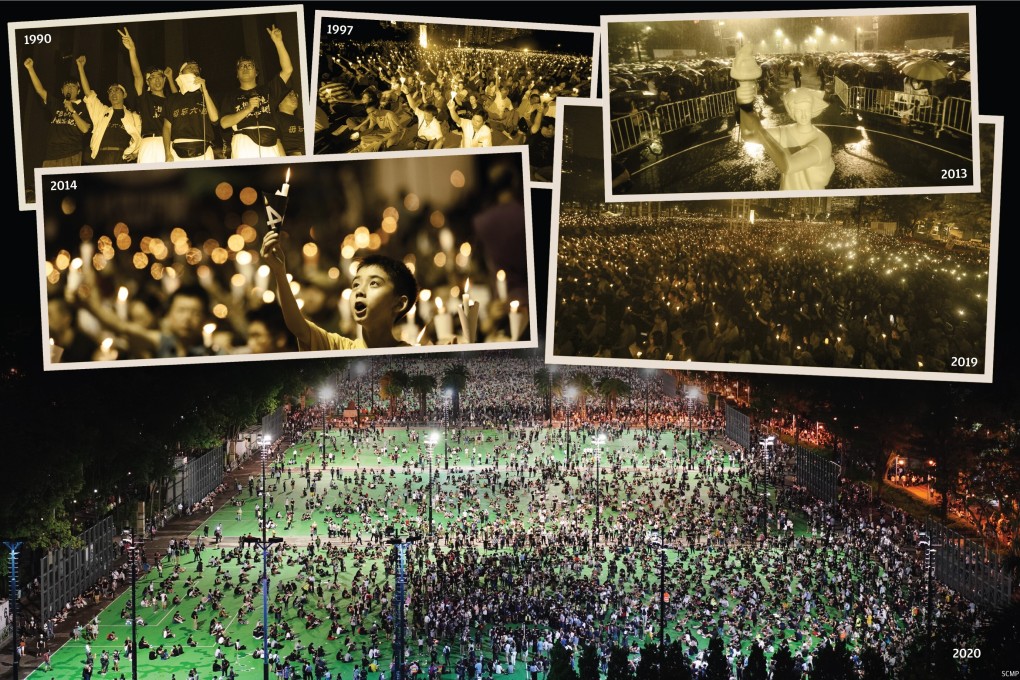Advertisement
Hong Kong’s first Tiananmen vigil after national security law: residents weigh police ban and seek ‘other ways’ to mark June 4 crackdown
- Some plan to avoid Victoria Park, but say they will light candles at home or elsewhere in city
- Fate of alliance behind annual candlelight vigil in the balance, with some leaders behind bars
Reading Time:7 minutes
Why you can trust SCMP
99+

Hongkonger Mary Cheung* was 29 and visiting Beijing for the first time when she stopped at Tiananmen Square and snapped photographs cheerfully in April 1989.
Not long after she returned home from her holiday, mainland Chinese students began gathering in the square to protest against corruption and demand greater political freedom.
The protests grew and continued for weeks until June 4, 1989, when the People’s Liberation Army sent in military tanks and crushed the movement, reportedly killing hundreds, possibly many more.
Advertisement
With memories of her holiday still fresh in her mind, Cheung could not believe the scenes of the bloody military operation that played on television screens and in newspaper images.
“How could the authorities do this to their people? They were young people with a great future ahead of them,” said Cheung, now 61 and a retired social worker. “They should not be forgotten.”
Advertisement

Her conviction that the victims of Tiananmen Square must be remembered took her to almost every June 4 vigil held since then at Hong Kong’s Victoria Park. It has been the only large-scale public gathering held on Chinese soil to commemorate the event.
Advertisement
Select Voice
Select Speed
1.00x